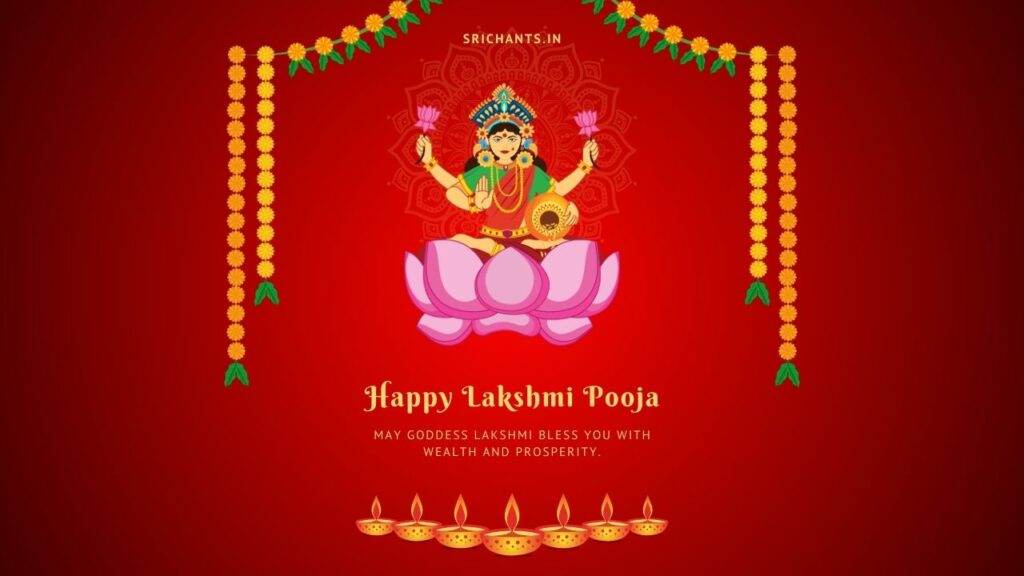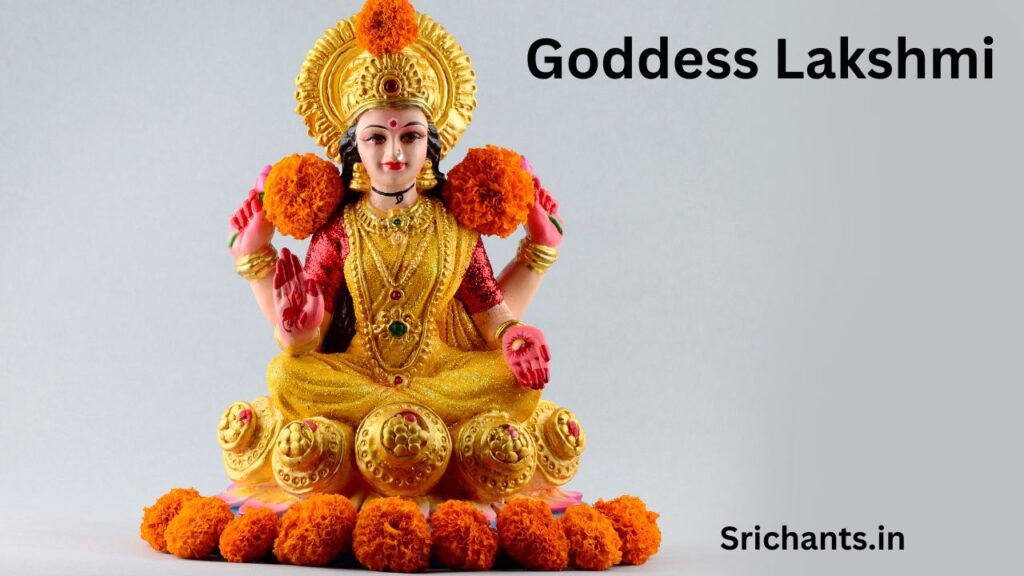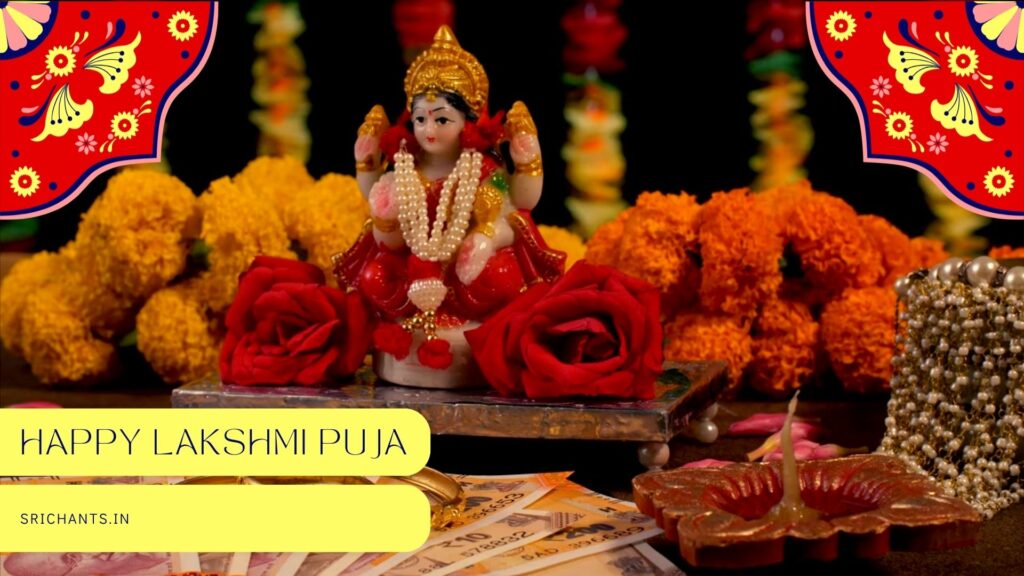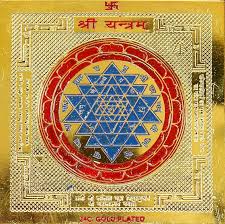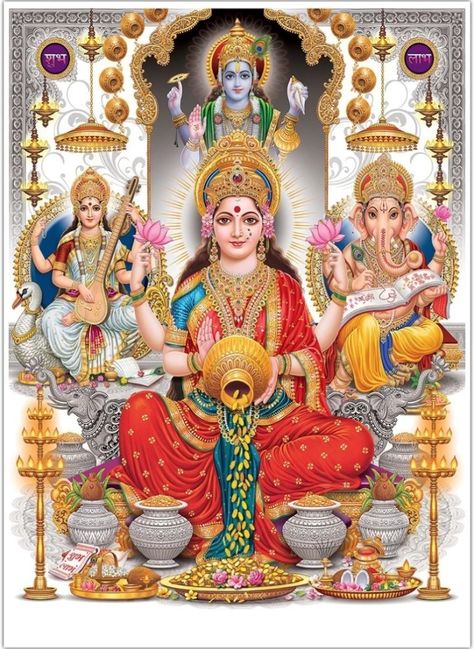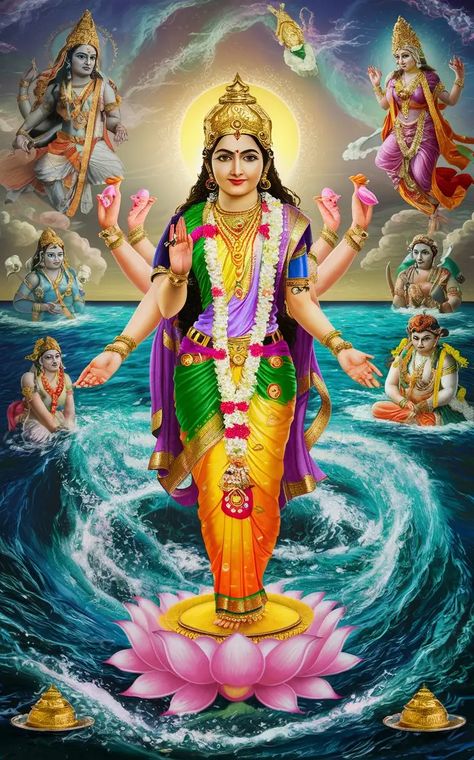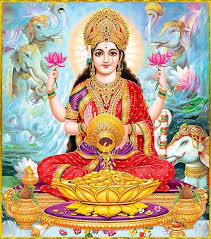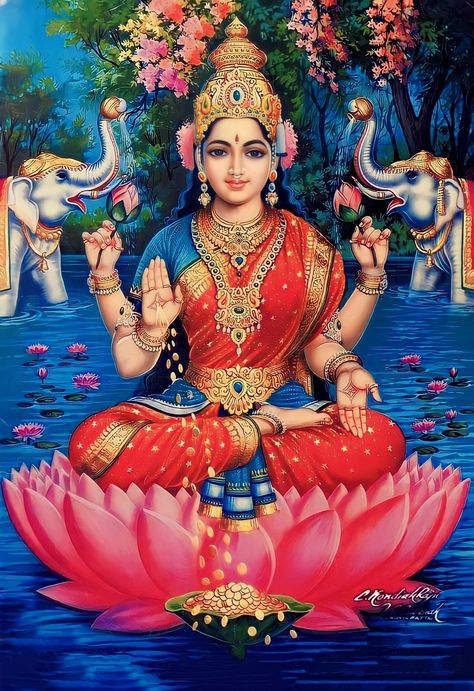Diwali Lakshmi pooja : Lakshmi pujan Importance in Deepavali
Introduction
The Hindu culture has a longstanding tradition of celebrating Diwali, the festival of lights, which is ingrained in profound symbolism and rich traditions. The revered Lakshmi Puja, a ritual that pays homage to the Goddess of Wealth, Prosperity, and Spiritual Enlightenment, is the focal point of this auspicious occasion. It is imperative to further explore the significance and multifaceted aspects of this sacred observance as the nation avidly anticipates the arrival of this joyous festival.
Lakshmi and Ganesha’s Legend
Lakshmi and Ganesha are inextricably linked in the tapestry of Hindu mythology, and their worship is interwoven with the festivities of Diwali. Legend has it that the childless Goddess Lakshmi adopted the elephant-headed Lord Ganesha as her own. Lakshmi declared that her wealth, prosperity, and accomplishments were also Ganesha’s in a gesture of maternal affection. She also declared that those who neglected to worship Ganesha in her presence would never attain genuine prosperity in their lives. The significance of honoring both Lakshmi and Ganesha during the Diwali festivities is underscored by the enduring connection between the two deities.
The Importance of Lakshmi Puja
Lakshmi Puja, which is observed on the third day of Diwali, is of great importance to the Hindu faith. The Goddess Lakshmi is held in high regard as the embodiment of spiritual well-being, abundance, and affluence. The devotee is believed to be guided toward their life’s goals and fulfillment through the worship of her, which is believed to provide them with a distinct sense of purpose, calmness, and strength.

In the Eight Aspects of Lakshmi
The Goddess Lakshmi is associated with eight unique aspects, each of which represents a unique aspect of spiritual and material prosperity. These include Adi Lakshmi (the primordial form), Dhana Lakshmi (wealth and prosperity), Vidya Lakshmi (knowledge and wisdom), Dhanya Lakshmi (food and agricultural abundance), Santana Lakshmi (progeny and lineage), Dhairya Lakshmi (courage and fortitude), Vijaya Lakshmi (victory and success), and Bhagya Lakshmi (good fortune and destiny). In an effort to achieve a harmonious equilibrium between their spiritual and material well-being, devotees venerate the Goddess in all of her multifaceted splendor.
Lakshmi and Lord Vishnu: The Cosmic Connection
The Lakshmi Puja that takes place during Diwali is also believed to have a deeper cosmic significance, as it is believed to coincide with the period of leisure for Lord Vishnu, the preserver of the universe. Lord Vishnu, the divine consort of Goddess Lakshmi, is said to be asleep from the 11th lunar day of Ashadh (Shayani Ekadashi) to the 11th lunar day of Kartik (Prabodhini Ekadashi) in Hindu mythology. Diwali is commemorated during this period, commemorating the triumph of good over evil and the return of Lord Rama to Ayodhya following his victory over the demon ruler Ravana.
The Rituals and Traditions of Lakshmi Puja
The Diwali Lakshmi Puja is a ritual that is meticulously planned and executed, and it is ingrained in age-old traditions and customs. The observance typically commences with a comprehensive cleansing and decoration of the home, which serves as a representation of the Goddess Lakshmi’s welcoming. The Lakshmi Puja is subsequently performed by devotees, who offer petitions, light diyas (oil lamps), and present offerings to the Goddess, including flowers, sweets, and coins. The chanting of sacred mantras and the recitation of Lakshmi Stotras (hymns dedicated to the Goddess) are frequently performed during the puja.
The Significance of Ganesha in Lakshmi Puja
The worship of Lord Ganesha is equally significant during the Lakshmi Puja. In order to guarantee that the devotee’s endeavors are successful and that their wealth is utilized prudently, Ganesha is invoked in conjunction with Lakshmi, the bestower of wisdom and prosperity and the remover of obstacles. The conviction that genuine prosperity is a harmonious combination of spiritual enlightenment and material abundance is further bolstered by the inclusion of Ganesha in the Lakshmi Puja.
The Auspicious Timing of Lakshmi Puja
It is believed that the Lakshmi Puja’s scheduling during Diwali is of great importance. It is purported to coincide with the Amavashya (new moon) night, which is regarded as the most auspicious time for the Goddess Lakshmi to visit the residences of her devotees. The positive energy and blessings associated with the Lakshmi Puja are believed to be amplified by this alignment with the lunar cycle
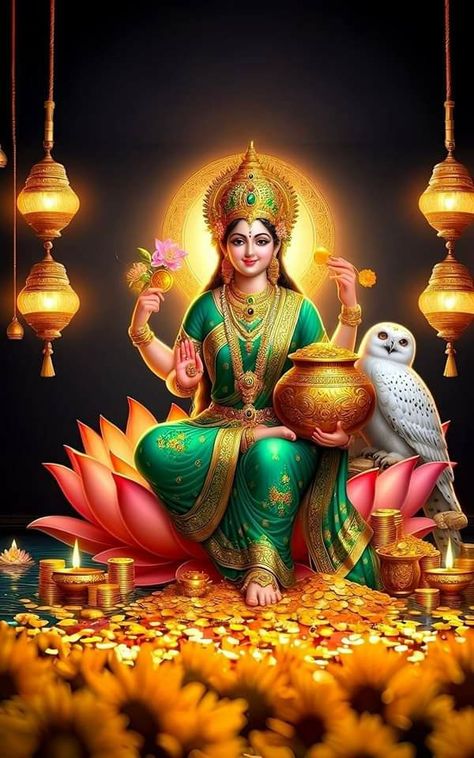
Lakshmi’s Symbolic Representation
The Goddess Lakshmi is frequently depicted as seated on a lotus flower, with one hand grasping a lotus and the other a pot of gold. This symbolic representation possesses a profound significance. The lotus, a flower that emerges from the murky waters, represents the capacity to overcome adversity and attain spiritual and material prosperity. The pot of gold symbolizes the prosperity and abundance that Lakshmi bestows upon her devotees. Furthermore, it is believed that the Goddess’s four-armed form is indicative of her capacity to achieve the four fundamental objectives of human existence: Dharma (righteousness), Artha (wealth), Kama (desire), and Moksha (liberation).
The Importance of Lakshmi Puja for Businesses
Lakshmi Puja is of particular importance to entrepreneurs and enterprises. Business owners and professionals seek the blessings of the Goddess Lakshmi during this auspicious time to guarantee the ongoing prosperity and development of their enterprises. Companies are believed to be able to attract new opportunities, maintain a harmonious work environment, and secure financial stability by worshiping Lakshmi.
Rudraksha’s Function in Lakshmi Puja
The Sapta Mukhi Rudraksha, or seven-faced Rudraksha bead, is one of the auspicious offerings during the Lakshmi Puja.. This rare and potent Rudraksha is reputed to have been blessed by the Goddess Lakshmi, rendering it a potent talisman for the attraction of financial abundance, prosperity, and fortune. In order to invoke the divine favor and protection of the Goddess, numerous businesses and individuals integrate the Sapta Mukhi Rudraksha into their Lakshmi Puja rituals.
The Worldwide Commemoration of Lakshmi Puja
The celebration of the Lakshmi Puja during Diwali is not restricted to the Indian subcontinent; rather, it is enjoyed by Hindus worldwide. Communities in countries such as the United States, Canada, the United Kingdom, and Australia have also adopted the traditions and rituals associated with Lakshmi Puja as the Indian diaspora has expanded to various regions of the globe. This worldwide commemoration of the Goddess Lakshmi emphasizes the enduring potency of the Diwali festivities and the universal appeal of her benevolent influence.
The Spiritual and Material Significance of Lakshmi Puja
The spiritual and material domains are both represented by the multifaceted significance of the Lakshmi Puja during Diwali. The worship of the Goddess Lakshmi is believed to foster a deeper connection with the divine, clarity of purpose, and inner calm on the spiritual plane. In order to achieve a harmonious equilibrium between their material and spiritual aspirations, devotees seek her blessings, acknowledging that genuine prosperity is not solely about affluence and abundance, but also about wisdom, courage, and a life of fulfillment.
The Lakshmi Puja is perceived as a method of attracting financial prosperity, business expansion, and overall well-being on a material level. Individuals and businesses aspire to achieve a consistent flow of prosperity, stability, and success in their endeavors by utilizing the Goddess’s grace. It is believed that the rituals and offerings performed during the Lakshmi Puja will facilitate the management of resources, protect existing assets, and open doors to new opportunities.
The Lakshmi Puja’s Universality
The Lakshmi Puja, which takes place during Diwali, resonates with individuals from a wide range of backgrounds, transcending the confines of religion and culture. Although the ritual is profoundly rooted in Hindu traditions, the fundamental principles of the Goddess Lakshmi’s benevolence and the pursuit of material and spiritual harmony are universally appealing. The Lakshmi Puja has been adopted by individuals and communities worldwide, irrespective of their religious beliefs, as a method of fostering a sense of purpose, well-being, and affluence in their lives.
conclusion
The Lakshmi Puja, which is observed during the auspicious festival of Diwali, is a testament to the timeless wisdom and enduring force of Hindu traditions. The significance of the Lakshmi Puja is profound and multifaceted, as the nation and the global Hindu community ardently anticipate the arrival of this joyous occasion. The Lakshmi Puja epitomizes the harmonious union of spiritual enlightenment and material prosperity, from the legendary connection between Lakshmi and Ganesha to the cosmic alignment of the ritual. Devotees endeavor to access a life of divine grace, purpose, and abundance by honoring the Goddess Lakshmi and adhering to the rituals and traditions that are associated with this observance.
#lakshmi #pooja #deepavali #diwali #importance #howto

